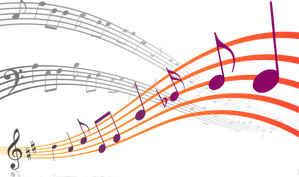
Connecticut Symbols
- 50 States
- » Histories
- » State Symbols
- » Songs
Connecticut State Song
"Yankee Doodle"
Written by Francis Hopkinson
Composed by Francis Hopkinson
Adopted on October 08, 1978 .
"Yankee Doodle" became official state song of Connecticut on October 8, 1978. The origins of the words and music of the Yankee Doodle are not known exactly due to the fact that the song has many versions. There are said to be as many as 190 verses of Yankee Doodle. But, this patriotic US song has an uncomplimentary history.
Connecticut State Song: "Yankee Doodle"
"Yankee Doodle"
Yankee Doodle went to town,
Riding on a pony,
Stuck a feather in his hat,
And called it macaroni.
chorus
Yankee Doodle keep it up,
Yankee Doodle dandy,
Mind the music and the step,
And with the folks be handy.
Origin of Song: "Yankee Doodle"
The music and words go back to 15th century Holland, as a harvesting song that began, "Yanker
dudel doodle down." In England, the tune was used for a nursery rhyme - "Lucy Locket". Later,
the song poked fun of Puritan church leader Oliver Cromwell, because "Yankee" was a mispronunciation
of the word "English" in the Dutch language, and "doodle" refers to a dumb person. But it was
a British surgeon, Richard Schuckburgh, who wrote the words we know today that ridiculed the
ragtag colonists fighting in the French and Indian War.
Soon after, the British troops used the song to make fun of the American colonists during the
Revolutionary War. Originally, the tune made fun of the poorly dressed and ill-equipped New
England soldiers. During the Revolutionary War with England, however, Americans slightly rewrote
the words to make fun of the British soldiers. And it became the American colonists' rallying
anthem for that war. At the time the Revolutionary War began, Americans were proud to be called
yankees and "Yankee Doodle" became the colonists most stirring anthem of defiance and liberty.
During Pre-Revolutionary America when the song "Yankee Doodle" first became popular, the word
macaroni in the line that reads "stuck a feather in his hat and called it macaroni" didn't
refer to the pasta. Instead, "Macaroni" was a fancy and overdressed ("dandy") style of Italian
clothing widely imitated in England at the time. So by just sticking a feather in his cap and
calling himself a "Macaroni", Yankee Doodle was proudly proclaiming himself to be a country
bumpkin (an awkward and unsophisticated person), because that was how the English regarded
most colonials at that time.
Yankee Doodle, the State Song of the State of Connecticut
According to the Connecticut State Register and Manual (1998), the words to Connecticut's
State Song are:
"Yankee Doodle went to town, Chorus:
Riding on a pony, Yankee Doodle keep it up, "
Stuck a feather in his hat, Yankee Doodle dandy
And called it macaroni Mind the music and the step,
And with the folks be handy."
There are several popular traditions relating to the origins of the song. One of them is that
Col. Thomas Fitch of Norwalk, Connecticut and his troop of Connecticut militia inspired the
song during the French and Indian War (1758-59). For background on Norwalk and the Fitch tradition,
please see The Birth of Yankee Doodle by Ferenz Fodor (New York: Vantage Press, 1976).
While the song may have been applied to Fitch and his men, its origins are further back. "The
American Origins of 'Yankee Doodle'," a scholarly article by J. A. Leo Lemay in the William
and Mary Quarterly (3rd series 33 (July, 1976)3:435-64) extensively examines the beginnings
and spread of this popular song. Lemay finds that the tune is colonial American in origin,
with at least two versions existing by 1745, indicating an earlier song that had had time to
evolve. In 1745, however, it first became prominent as it was used to make fun of the rag-tag
appearance and ill-equipped state of colonial troops as they left to fight the Battle of Louisburg
(Cape Breton area, Nova Scotia), which they won.
Lemay states that there were military and non-military versions of Yankee Doodle, but the military
versions were basically anti-American, ridiculing the non-uniformed appearance, the lack of
training, and the poor quality of the equipment of colonial American soldiers, as seen through
educated British eyes. So entrenched was this song as one of derision that the fife and drum
corps of the British reinforcements played it while marching into battle at Lexington, MA on
April 19, 1775. The British were defeated there, and as the Pennsylvania Gazette reported on
June 7, 1775: "'the Brigade under Lord Percy marched out, playing, by way of contempt,
Yankee Doodle; they were afterwards told, they had been made to dance to it.'" (Lemay,
p. 436)
With the American Revolution, Yankee Doodle became a quintessential American song, one that
said that Americans were proud of being who they were. Since then, it has been considered one
of the most American of all American folk songs, a symbol of the initiative and spirit of the
people that make up the United States of America.
Prepared by the History and Genealogy Unit, Connecticut State Library.
Revised 2-04.
Connecticut Law
Connecticut General Statutes, Title 3, Chapter 33, Section 3-110c. The words and the sheet music are included within the statute.
CONNECTICUT GENERAL STATUTES
TITLE 3 STATE ELECTIVE OFFICERS
CHAPTER 33 SECRETARY
Sec. 3-110c. State song. The song entitled "Yankee Doodle", composer unknown,
shall be the state song. The form in which this song shall be sung as the state song shall
be as follows:
WORDS
Yankee Doodle went to town,
Riding on a pony,
Stuck a feather in his hat,
And called it macaroni.
CHORUS
Yankee Doodle keep it up,
Yankee Doodle dandy,
Mind the music and the step,
And with the folks be handy.
MUSIC







